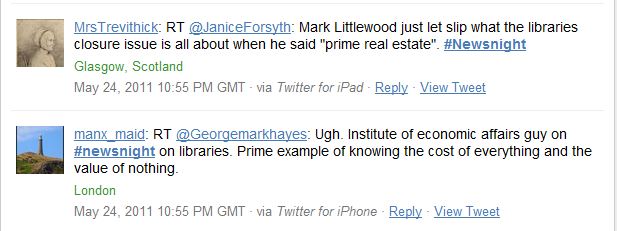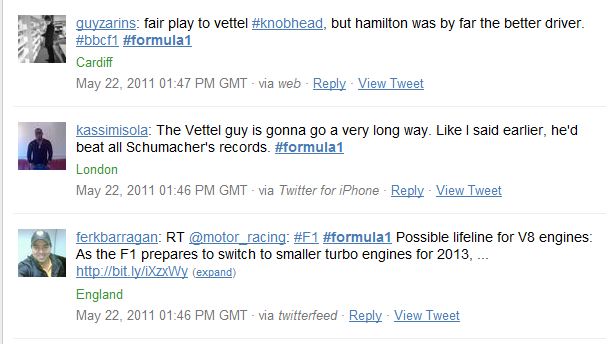In The US, it is becoming increasingly clear that Twitter has become a force that is drawing viewers back to live TV –a phenomenon that has become known as ‘social TV’.
According to Robin Sloan from Twitter, tweets about TV only really happen during the live event; "As soon as a new episode premieres or the Oscars start or a game kicks off, the tweets per minute skyrocket and we see it multiply 10, 20, 50 times and it stays like this until the show ends.”
In the UK, consumers have been a bit slower than their US counterparts to merge their Facebook, Twitter, and TV habits. However, although the level of conversation is still in the growth stages in the UK, there are strong signs that social TV might be more than a passing trend.
So far, most of the buzz about Twitter and TV about Twitter has been associated with big blockbuster TV events, like the Oscars and MTV Music Awards. However, there is increasingly large portion of viewers who tweet during any show they watch - not just the Super Bowl.
Interesting, the way people tweet about a TV show seems to depend on the program genre. Some genres like soaps draw strong, regular crowds of tweeters, while news and movies create very different social TV behaviours.
Soap Operas
Soaps and drama programmes are consistently the most tweeted TV genres in the UK. People tweeting about these shows seem to identify personally with the characters, and comment on the action as it happens:
TV Genius research started tracking tweets in March 2011, and found the following soap operas were the most popular on Twitter:
Top Tweeted Soap Operas
• EastEnders
• Coronation Street
• The Only Way is Essex
News
News shows are a different story.
Compared to soap operas, news shows display a very different tweeting pattern. Viewers of soap operas tend to tweet in a consistent pattern. Each time a new episode airs, you can expect to see about the same number of total tweets throughout each episode.
TV Genius research found that tweets for news programmes vary hugely each night.
For instance, tweets for the programme Newsnight vary between zero and thousands of tweets each night depending on who is interviewed and if a hot button topic is presented.
When there was a debate over library closures, people were quick to tweet their opinions:
Movies
Unexpectedly, the research also found that movies playing on TV regularly trend.
However, like with the news, movies only tend to get high levels of tweets when they are particularly interesting. Not every film playing during the evening receives many tweets.
Movies that play on a rolling basis on movie-specific channels don’t ever generate buzz on Twitter. Perhaps these rolling movies never gain a lot of attention because watching the movie is not a group event. The movies play over and over again all day, people don’t see the movie as tweet-worthy; since the content has been playing all day, it is neither new nor noteworthy.
Different films generate different levels of noise- depending on how compelling or interesting it is.
Top Tweeted Movies on TV
• Miss Congeniality
• Mr Bean’s Holiday
• The Bucket List
Tweets for films don’t display the same emotional investment as soaps and on-going dramas- instead people seem to just enjoy tweeting that they too are watching the film:
Sports
Tweets about sport tend to trace the emotional highs and lows of the event. There are usually huge spikes when goals are scored, game-changing penalties are given, and during the closing moments of a game.
Top tweeted sporting events
• Formula Grand Prix
• Golf Masters
• FA Cup Final (soccer)
The people tweeting about sports tend to be passionately involved, taking the opportunity to provide running commentary as the event plays out:
TV operators need to tune in
It’s clear that social TV is already happening in a big way across a variety of genres in the UK and US. As a result, operators have started testing different approaches to social TV.
For example, HBO has just released a beta app that lets viewers watch Twitter feeds and live commentaries around their favourite HBO dramas.
In a similar vein, in late March the BBC News put #BBCBudget on air just before and just after the UK Chancellor’s budget speech, generating a huge tweet spike. By centralising conversation around the hashtag, they easily curated related content onto their web portals.
These two examples demonstrate how seriously the TV industry is starting to take the social TV trend. Whatever approach ends up driving ratings and engagement, social TV looks like it will be one of the key trends for TV operators to tap into this year. After all- viewers are already there, it is just a matter of operators catching up and tuning in.
-- Content submitted by TV Genius





